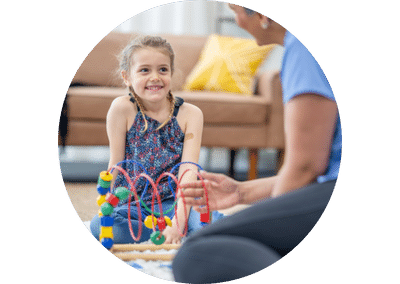Dialectical Behaviour Therapy (DBT) is a form of therapy originally developed by Dr Marsha Linehan in the 1980s to treat individuals with Borderline Personality Disorder (BPD).
Since then, DBT has been found to be effective in treating a wide range of mental health conditions, including depression, anxiety, eating disorders, and substance use disorders.
DBT is a type of Cognitive-Behavioural Therapy (CBT), which focuses on the relationship between our thoughts, feelings, and behaviours. However, DBT goes beyond traditional CBT by emphasising the importance of mindfulness, interpersonal effectiveness, and emotional regulation.
What is dialectics?
One of the key principles of DBT is the concept of dialectics. Dialectics is the idea that two seemingly opposing ideas can both be true simultaneously.
In DBT, this means that individuals are encouraged to accept and validate their thoughts and feelings while also working towards changing problematic behaviours.
How we use DBT
DBT is typically delivered in a group setting, although individual therapy may also be used. Group therapy provides a supportive environment where individuals can learn from each other’s experiences and receive feedback from peers and therapists.
The skills taught in DBT are organised into four modules: mindfulness, interpersonal effectiveness, emotion regulation, and distress tolerance.
These skills are taught in a specific order, with mindfulness being the foundation for the other three modules.
Mindfulness
Mindfulness is the practice of being fully present in the moment and non-judgmentally observing one’s thoughts, feelings, and surroundings.
Mindfulness skills taught in DBT include observing, describing, and participating. These skills can help individuals become more aware of their internal experiences and reduce emotional reactivity.
Interpersonal effectiveness skills
Interpersonal effectiveness skills focus on improving communication and relationship skills. These skills can help individuals set boundaries, say no, and assert their needs while maintaining positive relationships with others.
Interpersonal effectiveness skills taught in DBT include DEAR MAN (Describe, Express, Assert, Reinforce, Mindful, Appear confident, Negotiate), GIVE (Be Gentle, Act Interested, Validate, Easy manner), and FAST (Fair, Apologies, Stick to values, Truthful).
Emotional regulation
Emotion regulation skills focus on understanding and managing emotions. These skills can help individuals identify and change unhelpful thoughts and behaviours that contribute to emotional distress.
Emotion regulation skills taught in DBT include identifying and labelling emotions, increasing positive emotions, decreasing negative emotions, and changing emotional responses.
Distress tolerance
Distress tolerance skills focus on coping with intense emotions and difficult situations. These skills can help individuals tolerate distressing emotions without resorting to harmful behaviours.
Distress tolerance skills taught in DBT include using relaxation techniques, distracting oneself, self-soothing, and improving the moment.
How DBT can help
DBT has been found to be effective in reducing suicidal behaviour, self-harm, substance use, and hospitalisations among individuals with BPD. It has also been found to be effective in treating other mental health conditions, such as depression and anxiety.
While DBT was initially developed for individuals with BPD, it can be helpful for anyone who struggles with emotional regulation, interpersonal relationships, and distress tolerance.
DBT is particularly helpful for individuals who have experienced trauma, as it emphasises the importance of mindfulness and self-compassion.
If you are considering DBT, it is important to find a therapist who is trained in this type of therapy. DBT requires a significant time commitment, as it typically involves weekly individual therapy sessions, weekly group therapy sessions, and daily practice of skills outside of therapy.
Overall, DBT is a powerful tool for individuals who struggle with emotional regulation, interpersonal relationships, and distress tolerance.
Through the practice of mindfulness, interpersonal effectiveness, emotion regulation, and distress tolerance skills, individuals can learn to live a more fulfilling life and improve their overall mental health.
